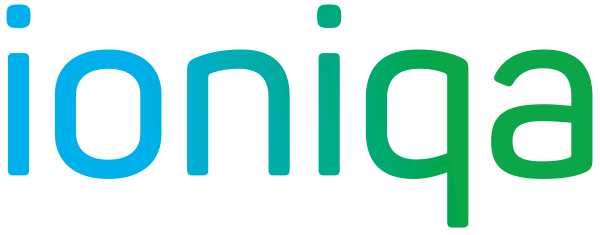Ioniqa is scaling up its technology for infinite PET plastic upcycling: the technology company is building its first PET plastic up-cycling factory in the Netherlands at Brightlands Chemelot Campus in Geleen. As of summer 2019, PET plastic waste will be converted into high-grade, pure PET raw material, of which new food packaging will be made.
Last April it was announced that Ioniqa had entered into a partnership with Unilever and PET packaging market leader Indorama. According to Tonnis Hooghoudt, CEO of Ioniqa, the cooperation with both multinationals is very important: “Since 2011, we have been developing in our R&D labs in Eindhoven (the Netherlands) this circular technology to up-cycle all types of colored PET plastic wastes and textiles. Over the past two years we carried out many tests at our demonstration plant at Plant One in the Port of Rotterdam (the Netherlands) to prove our process for the production of raw material for food packaging. This was an important step and validates Ioniqa’s circular solution for all stakeholders in the market.”
Make the world a better place
With its circular process no oil is needed anymore to produce new PET materials. “PET waste is our raw material. With Ioniqa’s process PET products, made from PET waste, are identical to those made from oil, with the same quality, food safety and competitive prices. Ioniqa’s up-cycling process makes the world cleaner and a better place.”
Looking at the many images of the plastic soup in the oceans and landfills with millions of plastic bottles and boxes: “We all made a big mess of it. I am happy that through our circular process we can contribute in clearing this up and, crazy as it may sound, making the use of plastic sustainable. Other value chain players already labeled our process as a real game changer.
Industrial Plant
The Ioniqa plant in the Netherlands (Geleen) will be be ready in the first half of 2019 and the end-product will be delivered to the market in the same year. Output of the plant is 10,000 tons of PET raw materials. “Both the supply of the PET feedstock as well as the off-take of the materials is already guaranteed for this 10,000 ton plant”, according to Hooghoudt. The Brightlands Chemelot Campus, Geleen (the Netherlands), is the perfect site for the Ioniqa factory and being close to Germany, Belgium and France, facilitates sufficient plastic waste streams for Ioniqa’s process. Limburg is a great location to become a key plastic hub in Europe.”
Bert Kip, CEO of Brightlands Chemelot Campus says: “Recycling is a crucial element in the ambition of Brightlands Chemelot Campus to stimulate and accelerate innovations in sustainability in the chemical and materials world. Together with Chemelot Industrial Park, we are building on a recycling ecosystem. Various parties at both Chemelot Industrial Park and Brightlands Chemelot Campus are already active in this area. We are therefore extremely proud that Ioniqa chose Brightlands Chemelot Campus as the location for the pilot plant for PET polyester recycling. Ioniqa fits perfectly in our strategy. We welcome Ioniqa on Brightlands Chemelot Campus and I would to thank all the partners of the campus who made this possible.”
Regional Minister of Economic Affairs and Knowledge Infrastructure Joost van den Akker: “The Province of Limburg is delighted that Ioniqa is establishing itself at the Brightlands Chemelot Campus. On this campus we work within the objectives of Chemelot 2025 on improving sustainability and reducing waste flows and CO2 emissions. Ioniqa’s technology will make a major contribution to this. Together with its fellow shareholders Maastricht University and DSM Nederland, the Province has also invested a great deal in recent years in creating an attractive business climate for innovative companies on the Brightlands Chemelot Campus. The arrival of a company like Ioniqa shows that we can now harvest the results of these efforts.”
Future
Hooghoudt envisions this first Ioniqa plant will be followed by many more. The 10,000 ton plant output is still a relatively small volume compared to market demand and scale up to 100,000 or 200,000 tons will certainly follow. “That is something for large internationally operating parties to take on,” says the CEO of Ioniqa. “We focus on licensing our technology globally. This will also ensure that the technology is implemented faster. Ioniqa will continue to focus on further technology development in the future in order to be able to recycle other types of plastics – and in the future also bio-plastics. ”
